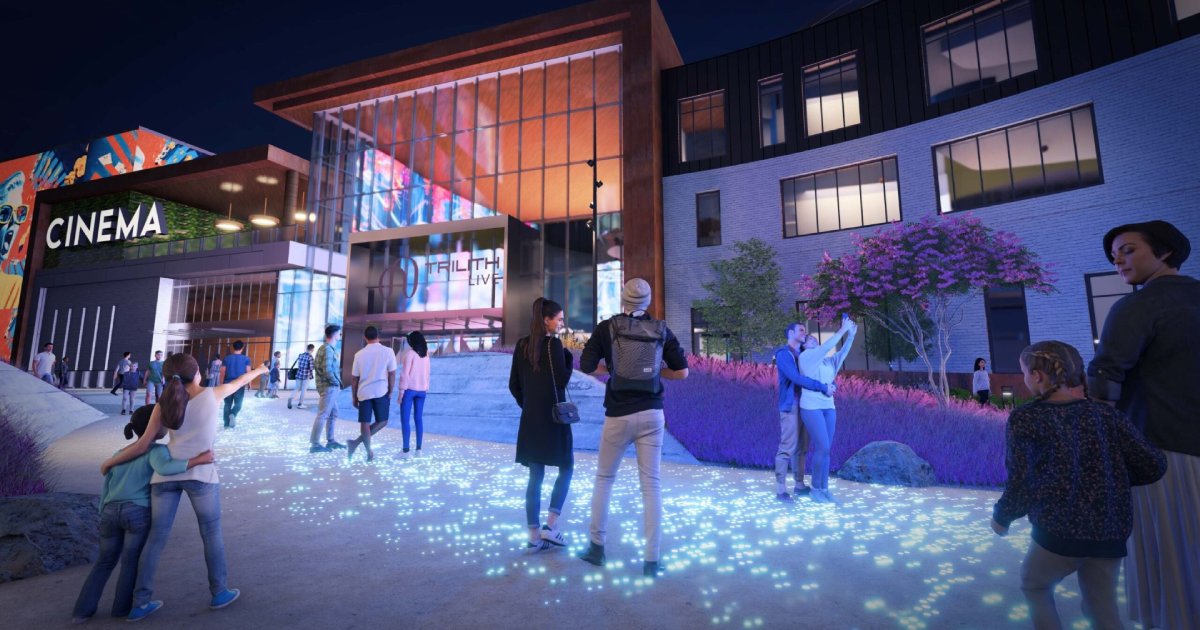Taking Advantage of the Experience Economy

An Executive Voices Blog by Ben Thompson, CEO of Storyland Locations
There’s never been a better time to be in the world of experiences.
The global experience economy is booming. In a world where younger generations are actively rejecting the consumerism of previous eras—where car ownership, large wardrobes, and even home ownership are no longer seen as ultimate goals—experiences are emerging as the new currency. People, particularly Millennials and Gen Z, are prioritizing what they do over what they own. They are curating memories, not collections.
In fact, data from Grand View Research shows that the location-based entertainment (LBE) market is projected to grow from $5.6 billion in 2024 to $25.9 billion in 2030 at a CAGR of 28.5% during that same period.
This shift has opened a powerful new chapter for brand owners. Because while experiences matter more than ever, not all experiences are created equal. IP makes a difference and most operators know it.
The growth of the global brand licensing industry demonstrates the increasing importance of IPs in consumers’ lives. According to Licensing International’s new Global Licensing Industry Study, sales of licensed products and services reached $369.6 billion in 2024 and the global licensing industry grew at 4.3% CAGR between 2014 and 2024.
This, along with the ongoing expansion of experiences, creates a significant opportunity moving forward.
For example, indoor family entertainment centres (FECs) and immersive experiences are booming with 30% growth in recent years, according to the Experience UK Trade Association. Additionally, social gaming and competitive socializing like Topgolf, Fight Club, and Fairgame has exploded by 386% since 2021, as reported by Forbes.
The experiences market is no longer a niche sector. It’s a global economic force—and IP is at the centre of it.
Study after study has demonstrated the commercial and emotional uplift that IP brings to a destination or venue, whether it’s a theme park, a hotel, a live show, a retail store, or a cruise ship attraction. Branded experiences consistently outperform non-branded ones. They’re more desirable, more shareable, more immersive, and more profitable.
But this goes deeper than brand recognition. The experience economy—what some still call location-based entertainment—isn’t the same as selling soft lines, hard lines, or apparel. It’s not a licensing play in the traditional sense. It’s a story brought to life in three dimensions through worldbuilding, identity-building, and immersion. It’s revenue that drives deeper engagement, which in turn creates more revenue.
For all the upside, many IP owners are still underexposed to the experience economy. They’re not maximising the opportunities in this space—not due to lack of interest, but often due to lack of understanding and experience.
Many struggle to navigate the complex and unfamiliar market segments. Others have difficulty determining which typology and format to pursue (for example, deciding between an indoor park, a pop-up, or a live tour). Many struggle with identifying the right developers and operators.
That’s why finding a trusted partner is crucial, to identify the right opportunities and ultimately create deals that strengthen and elevate the IP, because a great experience economy deal makes your brand stronger.
It doesn’t just generate revenue—it expands the universe of the story. It creates depth by adding context, backstory, and realism to characters and settings. It enables audiences to taste the food, step into the set, interact with characters, and live inside the world they’ve only previously seen on screen or page.
Live performance, themed dining, character interaction, bespoke merchandise, even scent and texture—all of these elements bring a story to life in a way that other media formats can’t. They build deeper emotional connections and longer-lasting brand equity.
Conversely, bad LBE deals can do real damage. Poor-quality execution, misalignment with brand values, outdated storylines, or a disconnect between IP and operator are mistakes that can cheapen the brand.
Take Dubai Parks and Resorts’ initial launch, with a range of great IPs from Dreamworks, SONY Pictures, Lionsgate and others. While well-intentioned, by most people’s assessment the end result lacked the quality and care those properties deserved. Similarly, Six Flags’ historic use of Marvel characters—while exciting at the time—failed to keep pace with evolving narratives and the expanding MCU due to rights issues, leaving guests with dated portrayals of dynamic IPs. Even some of the Marvel presence at Universal falls into this trap. These are missed opportunities, and they can actively undermine a brand’s long-term relevance.
Done well, experiences strengthen the IP. They build new fandoms, create meaningful engagement, and open up entirely new revenue streams. They become part of the cultural conversation—not just for today, but for the next decade.
Because great stories deserve to be lived, not just watched.
Storyland Locations sits at the intersection of storytelling, strategy, and experiences—connecting iconic brands with destination-defining real estate, operators, and investors. We bring brand owners and real estate developers together to build world-class, commercially successful location-based entertainment experiences. Like mountain guides, we chart the course between brands and the built environment.
*Image courtesy of Storyland Studios




